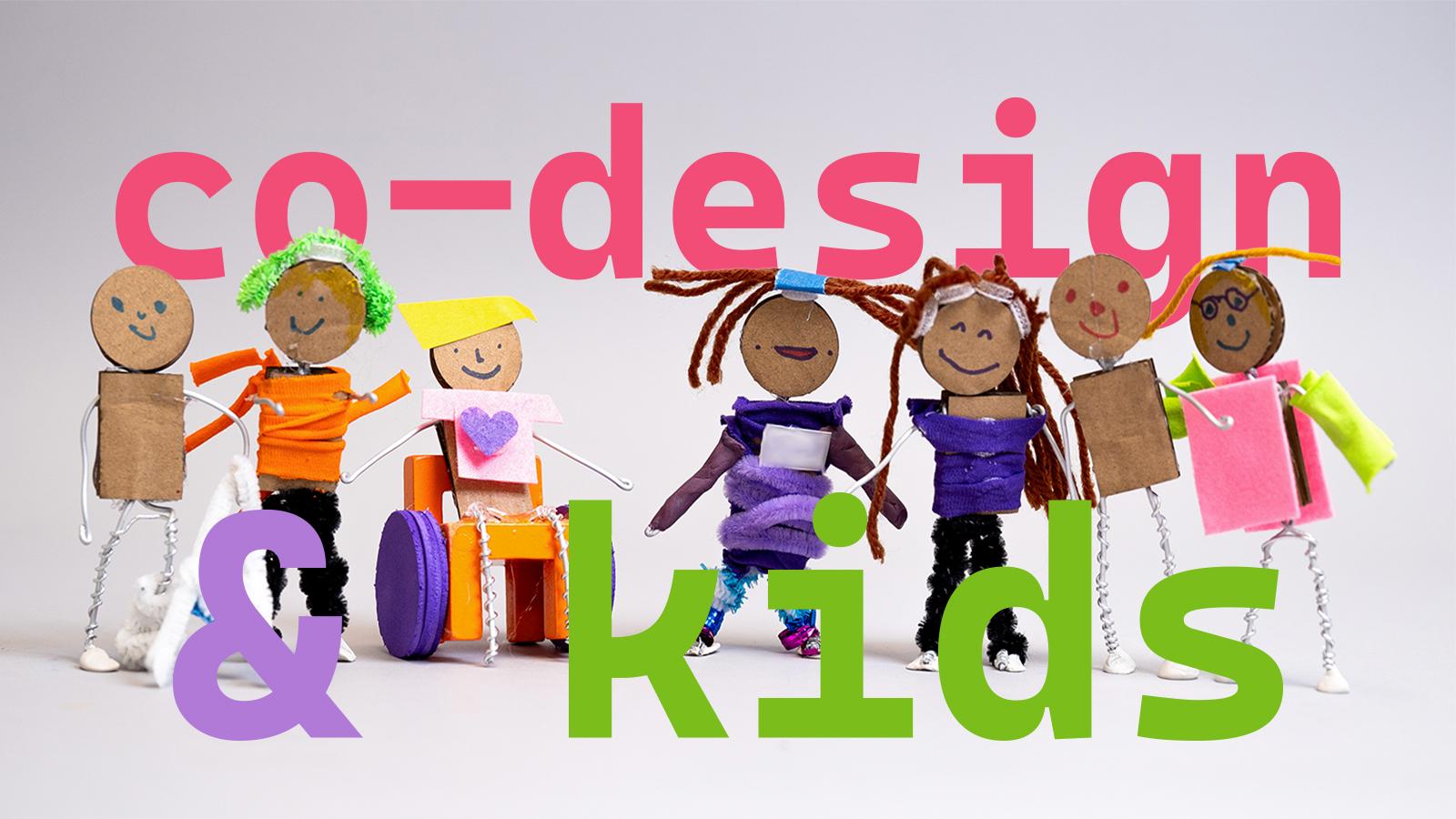Co-Design + Kids
The design of our world impacts all who inhabit it, including the youngest among us. Co-design is an approach for designing that is inclusive of those folks who may be impacted by a design outcome. This approach has evolved in the last several decades to include folks from different communities, backgrounds, professions – lived experiences – and has resulted in outcomes ranging from products to places, policies and beyond. One emerging area of co-design research and practice is co-design + kids, which includes young people from pre-K through early adulthood (e.g., toddlers, children, youth, adolescents, young adults) in a variety of groups (e.g., LGBTQIA+, community-based, out-of-school programs). The future belongs to kids so they must be involved in its creation.
Keywords
Co-design, Participatory design, Youth, Children, Lived experience
Advising Team/Lab
Elizabeth Sanders
William Nickley
Current and Recent Students Working on the Project
Heloisa Rocha Rincon, The Playground as a Co-Design Lab: An Exploratory Case Study of Elementary School Kids’ Role in Co-design, MFA 2025.
Min Liu, Designing Technology-Enhanced Informal Learning Experiences, MFA 2024.
Profile Description and Preferred Qualifications
Candidates must have experience interacting with kids.
Candidates must enjoy being with kids.
Candidates must adopt a co-design mindset.
Relevant Journals
Codesign: International Journal of CoCreation in Design and the Arts
Relevant Publications
Adams, E. and Sanders, E.B.-N. (1995) An Evaluation of the Fun Factor for the Microsoft Easy Ball Mouse. Proceedings of the Human Factors and Ergonomics Society, 39th Annual Meeting.
Evensen, E., Chan, P.K., Sanders, E.B.-N. and Nini, P.J. (2009) Crafting a Design Concept Prototype for an Educational Game Design: A Case Study. IASDR 2009: Rigor and Relevance in Design, COEX, Seoul, Korea.
Hussain, S. and Sanders, E.B.-N. (2012) Fusion of Horizons: Co-designing with Cambodian Children who have Prosthetic Legs by Using Generative Design Tools. CoDesign: International Journal of CoCreation in Design and the Arts.1-37.
Hussain, S., Sanders, E. B.-N., & Steinert, M. (2012). Participatory Design with Marginalized People in Developing Countries: Challenges and Opportunities Experienced in a Field Study in Cambodia. International Journal of Design, 6(2), 91-109.
Nickley, W., Snyder, C., McInroy, L. B., Sanders, E. B.-N., Scheadler, T. (2022, June 25–July 3). Affirmation excursion: Moving beyond surveys to make space for your stakeholders’ identities [Conference workshop abstract]. DRS 2022, Universidad del País Vasco. Bilbao. https://www.drs2022.org/workshops/
Nickley, W., McInroy, L. B., Sanders, E. B.-N., Snyder, C., Scheadler, T. (2022, June 20–22). Toward affirmative co-design: Accounting for intersectionality in LGBTQ+ youth identity & lived experience [Paper presentation abstract]. 8th International Forum of Design as a Process: Disrupting Geographies in the Design World. Bologña. https://www.forumdesignprocess.org/dgdw22/
Nickley, W. (2021). Practices of making: Exploring design-based making within Positive Youth Development. In M. Botta, & S. Junginger (Eds.), Design as common good: Framing design through pluralism and social values, 1086–1106. SUPSI, HSLU, swissdesignnetwork. https://designascommongood.ch/
Russell, S., Sanders, E.B.-N. and Zwelling, S. (1996) Re-Creating the School Lunch Kit: Research in Universal Product Design. In Universal Design: Creative Solutions for ADA Compliance.
Sanders, EBN., & Stappers, PJ. (2012). Convivial toolbox: Generative research for the front end of design. BIS.
Relevant Co-Design Work
CoDe Rainbow, a co-designed simulation-based training on delivering affirmative health care to LGBTQIA+ youth. https://coderainbow.training/
Local Tech Heroes, a non-profit dedicated to empowering kids to realize their potential by challenging them to solve big problems in their communities using emerging technologies. https://www.localtechheroes.org/

